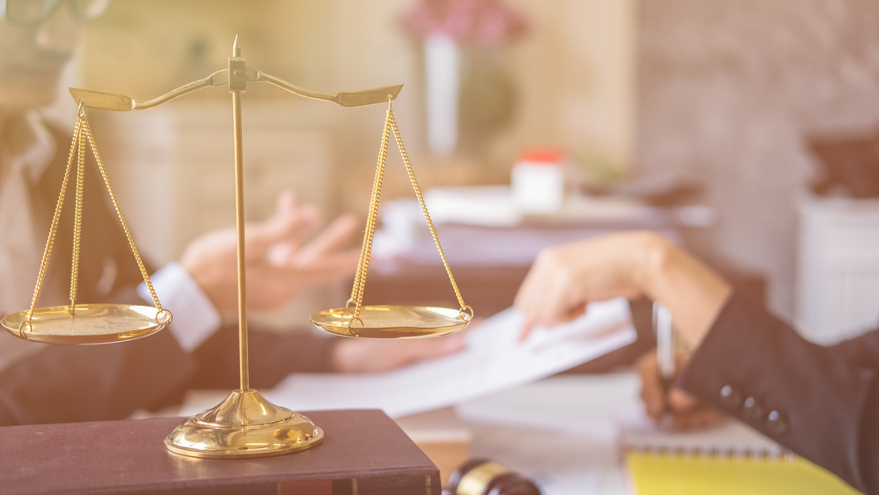3 repo organizations reiterate definitions of 8 key industry terms

By subscribing, you agree to receive communications from Auto Remarketing and our partners in accordance with our Privacy Policy. We may share your information with select partners and sponsors who may contact you about their products and services. You may unsubscribe at any time.
Earlier this year, a joint announcement from three of the largest repossession organizations — Allied Finance Adjusters, American Recovery Association and Eagle Group XX — reiterated their definitions of eight key terms associated with vehicle repossessions and recoveries.
Especially considering TransUnion noted the 60-day delinquency rate increased in the first quarter and exceeded the peak delinquency rate observed in Q1 2009, the organizations said they shared these definitions “to create accepted standards and practices to eliminate unfair and non-compliant practices by lenders, forwarding entities, repossession agencies and repossession agents.”
The organizations aim to “ensure that those lenders, forwarding entities, repossession agencies and repossession agents who refrain from using unfair and non-compliant practices are not competitively disadvantaged.”
ARA, AFA and Eagle Group XX also are looking to “promote consistent industry standards and practices to protect consumers against abusive, unfair and non-compliant actions.”
The groups began by defining who a consumer, saying it’s “an individual who obtains (or has obtained) a financial product or service from a lender primarily for personal, family, or household purposes, and for which non-realty property has been pledged as collateral for the consumer’s performance of financial obligations therein.”
Next, the organizations defined what a creditor or lender is.
Subscribe to Auto Remarketing to stay informed and stay ahead.
By subscribing, you agree to receive communications from Auto Remarketing and our partners in accordance with our Privacy Policy. We may share your information with select partners and sponsors who may contact you about their products and services. You may unsubscribe at any time.
They said it’s “a financial institution, credit union, or other entity that extends credit to a consumer and holds a security interest in property pledged as collateral for the consumer’s performance of the financial obligations therein. The creditor/lender is responsible for maintaining its right to repossess collateral by self-help from the time of declaring a default on the financial obligation up to and throughout the process of self-help repossession by its retained repossession agency.”
What specifically is a repossession agency?
“A business entity specializing in recovering collateral on behalf of creditors/lenders by self-help repossession,” the organizations said. “The agency is responsible for ensuring its compliance with federal, state, and local regulations while conducting repossession activities and should be vetted by one of the industry’s recognized national organizations’ objective and reasonable criteria for those compliance obligations.”
What about a repossession agent?
“An individual employed by a repossession agency who is trained and authorized to recover secured collateral by self-help repossession in accordance with applicable laws and industry standards,” the groups said. “Agents must be licensed, where required, and adhere to annual continuing education, strict ethical and procedural guidelines and must be certified by a nationally recognized professional repossession training program.”
Then, the groups delved into four specific types of repossessions, beginning with self-help repossession.
They said a self-help repossession is “the act of recovering, without action in the court system, collateral sold or leased on credit after the creditor/lender declares a default on the loan or lease. The act must meet the requirements of applicable statutes, rules and regulations and must be accomplished without a ‘breach of peace’ (as that term is defined in applicable state law).”
The organizations explained this act begins when the repossession agent makes a physical attempt to take possession of the collateral and is complete when either:
—The repossession agent gains control of the collateral by making physical entry into the collateral, moves the entire item of collateral, or connects the collateral to a towing apparatus
—Abandons the attempt to recover the collateral.
“To the extent this definition conflicts with applicable law, that law controls,” the groups said.
They defined an involuntary repossession with just a few words: “The recovery of collateral by self-help means in compliance with federal, state and local laws by a repossession agency and which is not a voluntary repossession.”
So, then, what is a voluntary repossession?
The organizations said it is “the recovery of collateral by self-help means, upon the surrender of the collateral by the consumer, which recovery is in compliance with federal, state, and local laws by a repossession agency.” They added a voluntary repossession happens when four actions unfold, including:
—The consumer’s accurate contact information is provided
—Contact with the consumer is authorized for the purpose of arranging an appointment for obtaining possession of the collateral
—The consumer accurately confirms the condition of the collateral in order for the repossession agency to prepare to take possession of the collateral
—The consumer is cooperative and not cause for delay, has removed all personal effects from the collateral prior to the time of repossession, and provides keys or other items necessary for operation of collateral at the time of repossession
Finally, the groups defined an impound repossession, which happens when “collateral is recovered by a repossession agency from a third-party facility, such as a tow yard or government impound lot, where the collateral has been held for legal or regulatory reasons unrelated to the repossession process.
“Impound repossessions often arise when a vehicle is towed for parking violations, accidents or other traffic infractions,” the organizations added.


